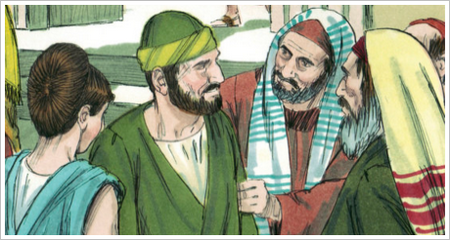
Listening to the radio last week, the sports commentator was discussing a coach’s evaluation of one of his rookie players. He noted that the young man was very smart and teachable. He mentioned that this player seldom made the same mistake twice, and he never had to correct him more than once. Because of this aspect of his character, the coach was confident that the player would have a successful career as a professional.
The conversation brought to my mind the words of Proverbs 17:10, “Rebuke is more effective for a wise man than a hundred blows on a fool.” With each of us there is the potential for mistakes. These may come from ignorance, or perhaps because we have been taught wrongly in the past. What distinguishes the wise man from the fool is whether correction is accepted.
So, what might get between us and our willingness to accept rebuke and change? PRIDE!
It may be pride of person. We cultivate a reputation that is threatened when we are told we are wrong. We have a desire to be seen by men as righteous, right, smart. Rather than accept rebuke, we deny its legitimacy. We can’t be seen as we really are, we must be perceived ideally by our fellow man. This was a problem with the Pharisees of Jesus day. “Woe to you, scribes and Pharisees, hypocrites! For you are like whitewashed tombs which indeed appear beautiful outwardly, but inside are full of dead men’s bones and all uncleanness. Even so you also outwardly appear righteous to men, but inside you are full of hypocrisy and lawlessness” (Matthew 23:27-28).
It may be pride of position. We are invested in where we are in our lives. We enjoy respect from men, and fear that an acknowledgement of error may have consequences. We may lose a friend, the acceptance of a loved one, a valued job. There are things in life that we lay hold of too strongly, and are unwilling to part with. Again, we have a scriptural example of such pride. The apostle John declares that though many of the religious leaders did not believe in Jesus, despite His signs, there were others who did believe. Concerning this group, John wrote, “Nevertheless even among the rulers many believed in Him, but because of the Pharisees they did not confess Him, lest they should be put out of the synagogue; for they loved the praise of men more than the praise of God” (John 12:42-43).
For whatever reason, such a reaction to correction is foolish. The wise man acknowledges what is wrong, and changes to what is right. That is what makes him wise!
Apollos is a wonderful example of this, as noted in Acts 18. He was a fervent man, and vigorously taught the “things of the Lord, though he knew only the baptism of John” (25). Aquila and Priscilla “took him aside and explained to him the way of God more accurately” (26). He took their correction, and remained a strong advocate for Christ, “for he vigorously refuted the Jews publicly, showing from the Scriptures that Jesus is the Christ” (28).
Apollos was recognized as an eloquent man, “mighty in the scriptures” (24). The correction of Aquila and Priscilla might not have been well received if Apollos had too much pride of person or place. He was wise in accepting their teaching, and changing his own.
We should accept that we can make mistakes, and not be ashamed when it happens. For whatever reason, such failures can be an impetus for growth and improvement. We simply need to humble ourselves before God and men, and be wise rather than a fool!




